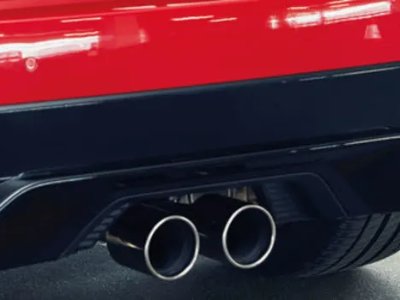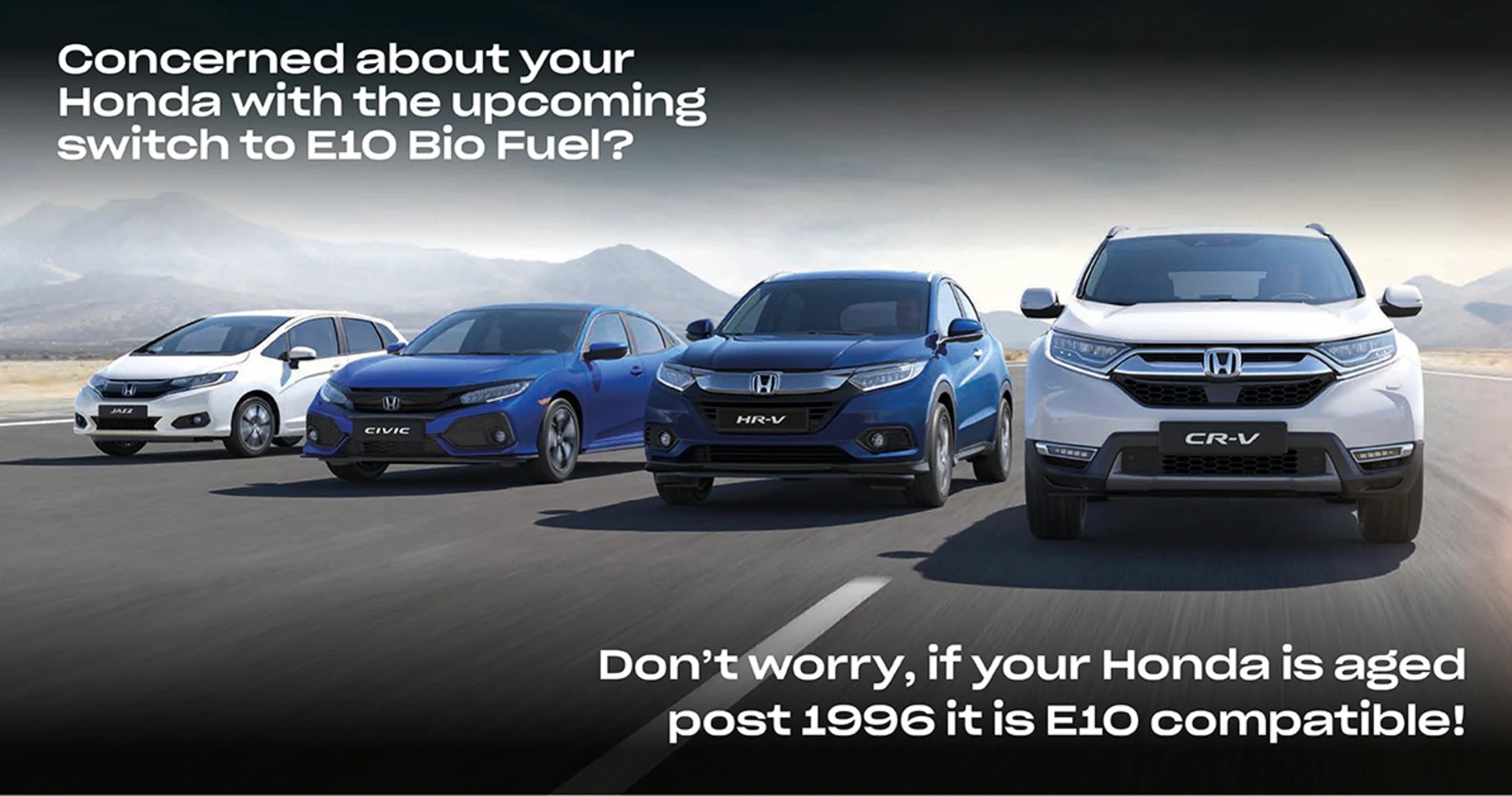
E10 Fuel - Is Your Honda Compatible?
If your Honda is post 1996:
• Yes if your Honda has a petrol or hybrid engine and was produced since 1996, you can use E10 fuel.
All Honda petrol car models produced post-1996 (year model) are fitted with electronic fuel injection (Honda PGM-FI) and will be compatible with the new E10 fuel.
If your Honda is pre 1996
• If your car is aged pre 1996, or you are unsure of the year your car was made and whether it may be compatible with E10 petrol, please contact Honda Customer Service with details of your vehicle's V5 UK Registration Certificate, on 0845 200 8000, or contact your preferred HSH Motor Group Honda dealership.
E10 BIO FUEL FREQUENTLY ASKED QUESTIONS
1. What is E10 fuel?
In brief: Petrol that has up to 10% ethanol content.
E10 petrol is a new fuel specification for petrol powered vehicles and equipment. The E10 fuel specification has the same quality standards as the current regular unleaded 95 petrol but allows for the inclusion of up to 10% ethanol, where as the current regular unleaded 95 petrol allows for the inclusion of only up to 5% ethanol.
2. What is ethanol?
Ethanol is a form of alcohol, which is obtained through the fermentation of distillation of crops, known as feedstocks, such as grains, sugar beet or straw. In addition to ethanol there are a number of other renewable and sustainable fuels which have similar properties and effects on the vehicle as ethanol. For simplicity these are all referred to as E10 petrol.
3. What’s the difference between E10 and current unleaded petrol?
E10 petrol meets the same quality standards as current unleaded petrol 95, but a greater volume of renewable fuels may be blended in to it. This specification of petrol has already been introduced across Europe and you may have already seen it in French or German filling stations, where it has been on sale for a couple of years.
4. Why is E10 petrol being introduced – is there a problem with ‘normal’ / E5 petrol?
As a global countermeasure to reduce CO2 emission and reduce harmful effects on the environment, the use of bio- fuel as gasoline for petrol powered vehicles and equipment has been adopted generally.
As a result an EU directive 2009/30/EC has been issued, where all 27 EU member States have to allow sales of gasoline with up to 10% ethanol (ie E10). There are mandatory European targets to introduce renewable fuels into the road transport sector in order to reduce green house gas (GHG) emissions of transport. Biofuels are one way to meet these targets. E10 petrol is a simple method to introduce renewable fuels into the UK market and is compatible with the vast majority of current vehicles.
5. When will E10 be in petrol stations?
It is expected that the UK petrol producers can start the roll out of petrol containing up to 10% ethanol – known as E10 – from early 2013, but it is up the fuel producers whether they do introduce this specification of fuel. Different retailers may choose to introduce E10 petrol on different timescales, therefore availability of E10 petrol may vary by geographical area and branded outlet.
E10 petrol will be clearly labelled at the dispenser. The standard marking for all dispensers using the new E10 petrol grade is set out in the British Standard, and will follow the form below:
UNLEADED PETROL 95 E10
Not suitable for all vehicles: consult vehicle manufacturer before use BS EN 228
The ‘95’ in the label refers to the minimum octane rating, RON, on the fuel.
6. Will E5 stop being available?
The existing grade of unleaded petrol is likely to be available whilst demand for it continues, although this might not be the case on every petrol station forecourt as it is up to the fuel provider to decide which grades of fuel they supply.

Fill in your details below and a member of our team will be in touch
By providing your details you consent to us being able to contact you using the methods given above. Read more.

